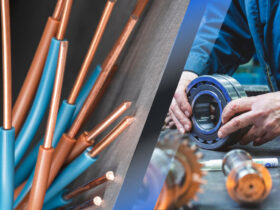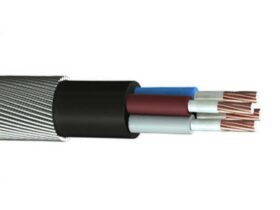In today’s world, instrumentation cables are essential for connecting devices in a variety of control and measurement applications. They are used to transmit electrical signals between devices in process control systems, power generation, and communication systems. Instrumentation cables are designed to be highly resistant to electromagnetic interference and provide stable and reliable transmission of signals over long distances.
There are many different types of instrumentation cables available, each with its own set of features and benefits. Some of the most common types of instrumentation cables include:
- Screened cables: Screened cables have an additional layer of shielding that helps to protect the signal from electromagnetic interference. This makes them ideal for use in applications where there is a lot of electrical noise, such as near power lines or in industrial settings.
- Armored cables: Armored cables have an additional layer of metal armor that helps to protect the cable from physical damage. This makes them ideal for use in harsh environments, such as outdoor applications or in areas where there is a risk of the cable being crushed or cut.
- Multi-core cables: Multi-core cables have multiple conductors that can be used to transmit multiple signals simultaneously. This makes them ideal for use in applications where multiple devices need to be connected, such as in a process control system.
Instrumentation cables are an essential part of many industrial and commercial applications. They provide a reliable and efficient way to transmit electrical signals between devices. If you are looking for a cable to connect your devices, be sure to consider an instrumentation cable.
Here are some of the benefits of using instrumentation cables:
- Highly resistant to electromagnetic interference: Instrumentation cables are designed to be highly resistant to electromagnetic interference, which can cause signal distortion and noise. This makes them ideal for use in applications where there is a lot of electrical noise, such as near power lines or in industrial settings.
- Provide stable and reliable transmission of signals over long distances: Instrumentation cables are designed to provide stable and reliable transmission of signals over long distances. This is important for applications where the signal needs to be transmitted over a long distance, such as in a process control system or in a power generation plant.
- Available in a variety of configurations: Instrumentation cables are available in a variety of configurations, including screened and unscreened, armored and unarmored, and multi-core cables. This makes it possible to choose the right cable for the specific application.
- Backed by a warranty: Most instrumentation cables are backed by a warranty, which provides peace of mind knowing that the cable is covered in the event of a failure.
If you are looking for a cable to connect your devices, be sure to consider an instrumentation cable. They provide a reliable and efficient way to transmit electrical signals between devices.














1 Comment